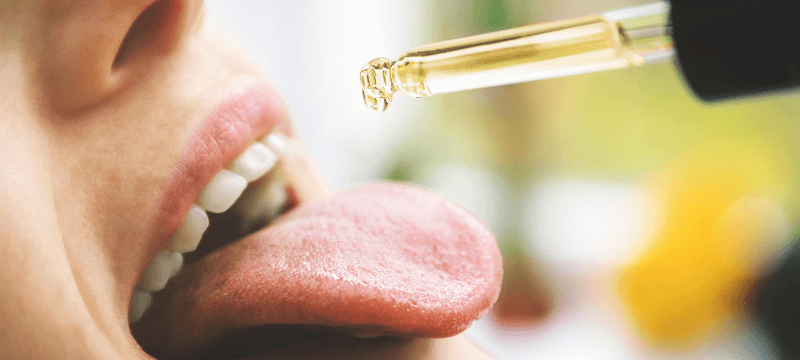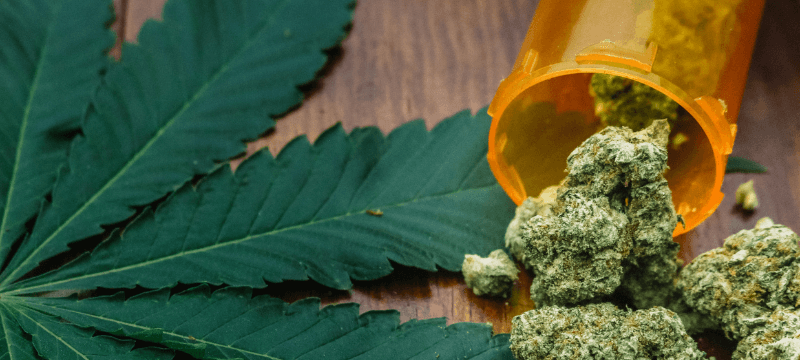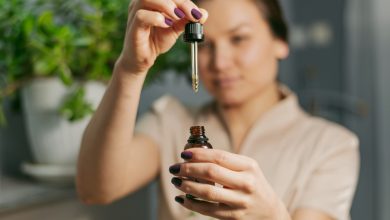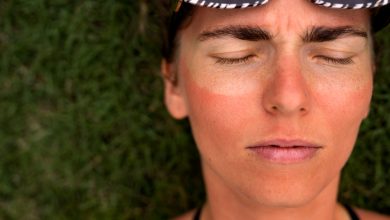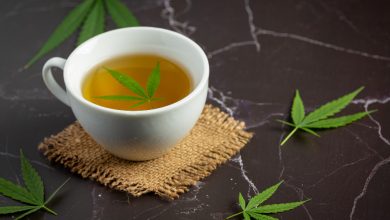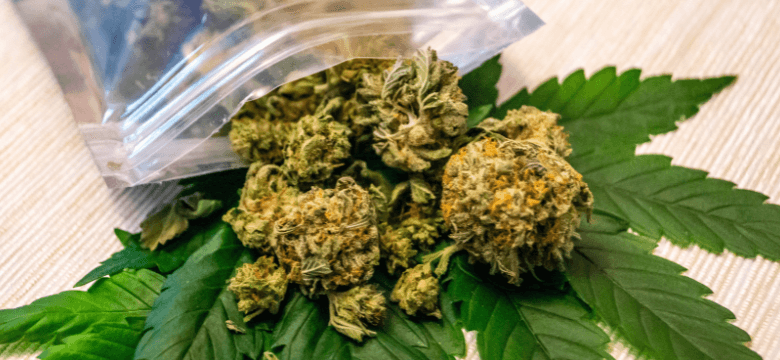
If you’ve ever asked yourself the question, “does CBD make you high?” You are not alone. Many people are scared of using CBD for fear of getting high, thanks to misinformation and a lack of understanding of the cannabinoid. But does CBD get you stoned?
Read on to find out more about how your body reacts to CBD.
Table of Contents
Misconceptions about CBD
The fact that CBD and marijuana are both found in the same plant leads some people to believe they have similar effects. However, what they don't realise is that it is another cannabinoid known as tetrahydrocannabinol (THC) that causes the high associated with marijuana.
CBD vs THC
Cannabidiol (CBD) is one of the most abundant compounds naturally found in the hemp plant. It is known as a cannabinoid, which is a chemical compound that works throughout the body, including the brain.
Tetrahydrocannabinol (THC) is also a cannabinoid found in cannabis, except it is psychoactive, which means it can get you high. However, although CBD and THC are both cannabinoids, they are very different. Unlike THC, CBD is a non-psychoactive cannabinoid that has no intoxicating effects.
While both CBD and THC impact CB1 receptors in the brain, they produce different results. When THC activates CB1 receptors, the high associated with marijuana is triggered. Conversely, CBD does the opposite, acting as a CB1 antagonist, counteracting any intoxicating effects brought on by CB1 receptors. This means that, when taken with THC, CBD can stop you from getting high.
Does CBD get you stoned?
So, can you get high from CBD oil? The answer is no, you cannot, as long as the CBD oil you use contains less than 1 mg THC. While CBD may help reduce the symptoms of anxiety and depression, this is not the same as the high produced by marijuana. Even taking high concentrations of CBD will not cause the same high, although you may feel a heightened sense of calm. Unlike THC, CBD doesn't induce euphoria or alter space or sensory perception.
Instead, CBD is marketed as a natural way to reduce anxiety and promote relaxation. Numerous studies suggest CBD may have the potential to help with various other conditions, including:
- Anxiety
- Depression
- Skin conditions
- Epilepsy
- Multiple sclerosis (MS)
- Alzheimer's
- Dementia
- Parkinson's
- Chronic pain and inflammation
- PTSD
Although research is still ongoing, evidence from past research shows that CBD has great promise. As CBD research advances, medical specialists will have a better understanding of the cannabinoid and how it works.
Why does CBD make me feel high?
CBD by itself does not make you feel high. The ‘high’ you claim to be experiencing is actually just an enhanced sense of calm. Or, you’ve taken more than the recommended dose of CBD and are experiencing an uplifted feeling. Still, this is not the same as the high caused by THC, and you are not stoned.
Can CBD cause you to fail a drug test?
CBD shouldn't show up on a drug test. THC, however, can be detected. Both CBD and THC are present in the hemp plant, which means CBD can contain some THC. This could result in a positive drug test. However, it is the THC, not the CBD, that caused the drug test to fail as CBD is not tested for, unlike THC.
If you are about to take a drug test, you must be very cautious while purchasing a CBD product. In order to ensure a negative test result, only buy the best CBD products that are certain to contain little to no THC.
How to tell if your CBD product contains THC
A reliable CBD product will list its THC content on its label or packaging. If there is no mention of THC, choose a different product that provides the precise dosage.
Side effects of CBD
Although the World Health Organization (WHO) says CBD is relatively safe, research is still in its infancy, and there have been rare cases of users experiencing some side effects, including:
- Dry mouth
- Diarrhoea
- Drowsiness
- Fatigue
- Lightheadedness
- Nausea
However, these occurrences are pretty uncommon and generally mild.
Please note that CBD may interact with certain medications. If you're on any medications like diuretics or antidepressants, speak to your doctor before using CBD. They will be able to advise whether it is safe for you to do so.
Furthermore, you should avoid CBD if you are pregnant or lactating. There is not enough research to determine CBD's exact effects on either of these conditions.
Is CBD legal in the UK?
In the UK, CBD products must adhere to a stringent set of rules and regulations in order to be legal:
- CBD products may not contain more than 1 mg of THC per product
- The CBD must come from EU-approved industrial hemp
- Only those with a Home Office licence are permitted to cultivate industrial hemp
- The sale of CBD flowers and buds is illegal in the UK
- All CBD products must be correctly labelled
- CBD products must be validated/approved for a novel food application
As long as all these requirements are met, CBD is legal in the UK.
Key takeaways – Does CBD get you stoned?
Thanks to its connection with its cousin THC, the mistaken belief that CBD can get you high will still be around for some time. However, CBD can't get you high. While CBD leads to a heightened sense of relaxation and calm, THC is the one that gets you stoned, causing euphoria and distorting perception. Therefore, as long as the CBD oil you use contains less than 1 mg of THC, you can’t get high from it.
Consult your doctor before using any CBD product. Furthermore, ensure that you only buy CBD oil of the highest quality from trustworthy sources. Check a product's label to see whether it has undergone independent testing and states the CBD and THC content. Never buy a CBD product that does not do third-party lab testing or display information regarding its contents on the label.
With minor side effects and studies showing plenty of potential health benefits, CBD is here to stay. Give it a try, there's a good chance it can help you with something you've been struggling with. It might just be the solution you need.

